Word of the Day Gourmand – Meaning, Usage & IELTS Examples
3 min read
Updated On
-
Copy link
This blog explains the word “Gourmand,” meaning someone who enjoys eating large amounts of food. Discover its history, usage examples, and how to use it effectively in IELTS Speaking and Writing to improve your vocabulary.
Table of Contents

Limited-Time Offer : Access a FREE 10-Day IELTS Study Plan!
Improving your vocabulary is a vital part of preparing for the IELTS exam. Today’s word, “Gourmand,” is particularly useful in IELTS Speaking and Writing when describing people who love eating, food culture, or habits, especially in contexts related to food, lifestyle, and social experiences.
Meaning of “Gourmand”
(noun): Somebody who enjoys eating and eats large quantities of food.
Origin and History
Basically, the origin of this word is still unknown. However, it is believed that it is connected with the word ‘gourmet’ and came into the limelight in 1758. The word came from late Middle English and is an Old French word. Another attribution goes back to the 18th century where it appeared in the translation of Odyssey by Homer. There was an exasperated question that the Alexander asks, “What God has plagu’d us with this gormaund guest?’ Earlier, the word was regarded in a negative way and was a synonym of ‘Glutton’, used to explain such a person who was a greedy eater and ate even after satiating his hunger. However, in the 19th century, English speakers borrowed ‘gourmet’ from French, gradually declining the negative connotation attached with the word.
Want to master more high-band IELTS vocabulary for the IELTS exam? Book a Free Demo Class today!
Usage in IELTS Context
Mastering the word “gourmand” can help you describe food-related habits and cultural experiences vividly in IELTS Speaking Part 1, Part 2, or even Part 3 discussions, as well as in IELTS Writing tasks about lifestyle or culture.
How to Use “Gourmand” in IELTS Speaking & Writing?
Understanding the different forms of this word can help you use it naturally across a range of IELTS Speaking and IELTS Writing topics.
1. Noun Form – Gourmand
IELTS Tip
Using specific IELTS Vocabulary like “gourmand” naturally can improve your Lexical Resource score. Try to include it when talking about eating habits, food culture, or personal preferences.
Synonyms for Gourmand
- Food lover
- Epicure
- Glutton (negative sense)
- Foodie (more casual, less intense)
How to Use “Gourmand” in IELTS Speaking?
The word “gourmand” describes someone who enjoys eating a lot. It’s a useful noun for adding variety when discussing food, culture, or social occasions in the IELTS Speaking test.
Where You Can Use “Gourmand”:
- IELTS Speaking Part 1 (Introduction): When describing your eating habits or preferences.
- IELTS Speaking Part 2 (Long Turn): When describing memorable meals or food experiences.
- IELTS Speaking Part 3 (Discussion): Discussing food culture, health, or lifestyle trends.
Example:
"I wouldn’t call myself a gourmand, but I do enjoy trying different cuisines when I travel. Some of my friends are real gourmands—they can eat huge amounts without feeling full."
Practice Question for IELTS Speaking
Q: Describe a memorable meal or food experience you enjoyed.
A: Last year, during a trip to Italy, I shared a meal with some true gourmands who introduced me to various authentic dishes. Their passion for food made the experience unforgettable, and I appreciated the cultural insight it gave me.
Overall, the word “Gourmand” is an excellent addition to your IELTS vocabulary when discussing food, lifestyle, and culture in both Speaking and Writing tasks. Using words like gourmand naturally can boost your Lexical Resource score and help create vivid, engaging answers. For top IELTS Band Score tips, follow our IELTS Exam Preparation Guide for Band 8+ to further enhance your vocabulary and performance.
If you're aiming for top IELTS Band Score, follow the IELTS Exam Preparation Tips for Band Score of 8+ to further enhance your vocabulary and overall test performance.
Also Check:
Explore IELTS Resources

Start Preparing for IELTS: Get Your 10-Day Study Plan Today!
Recent Articles
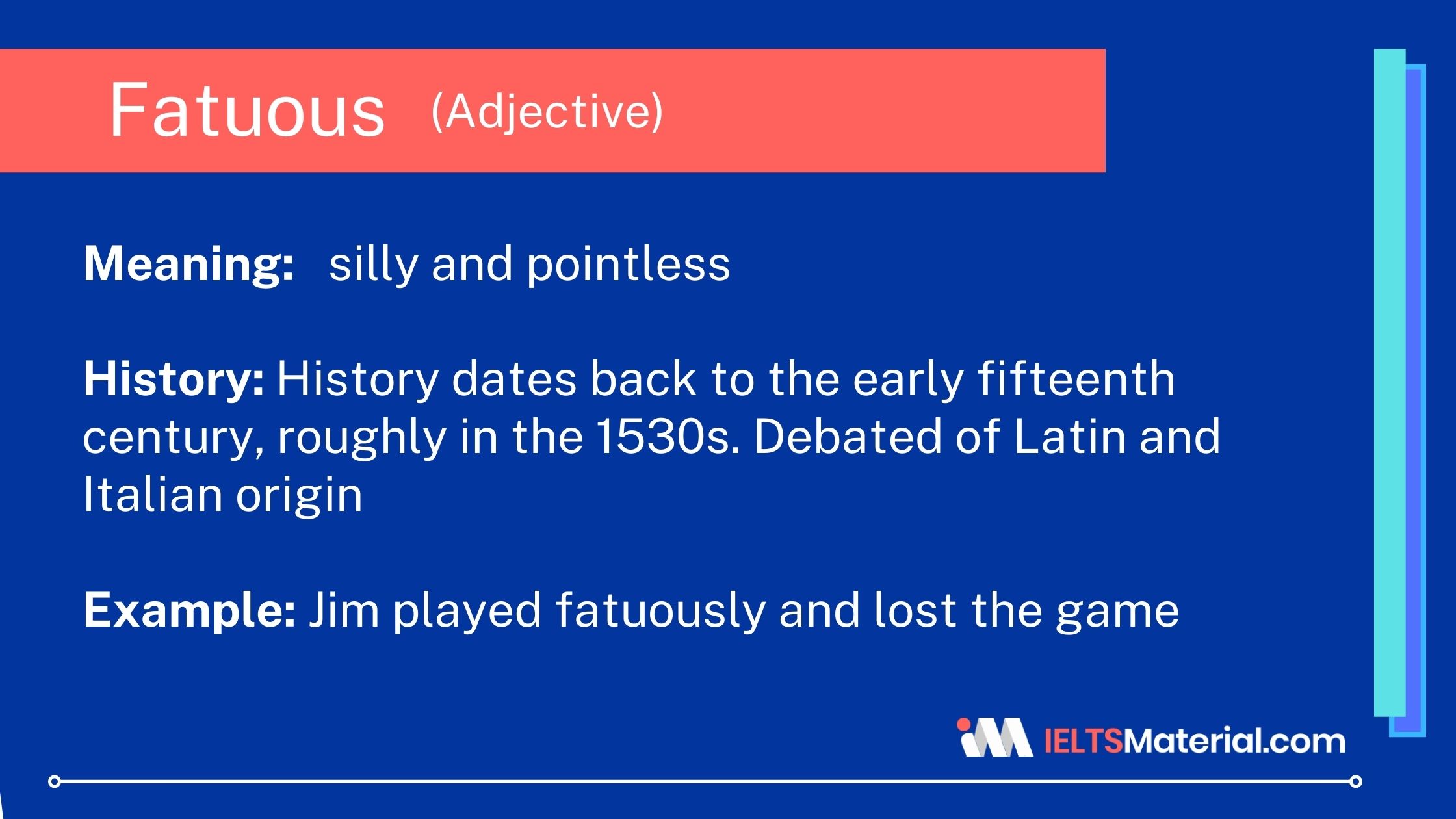
Kasturika Samanta
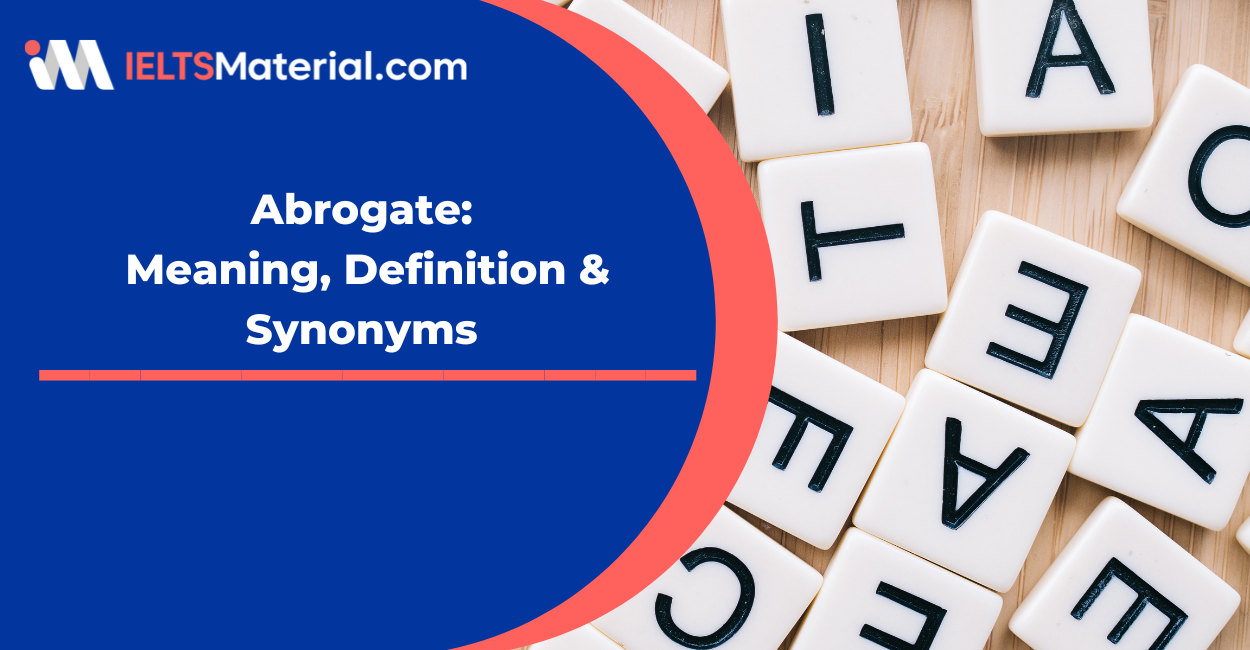
Kasturika Samanta
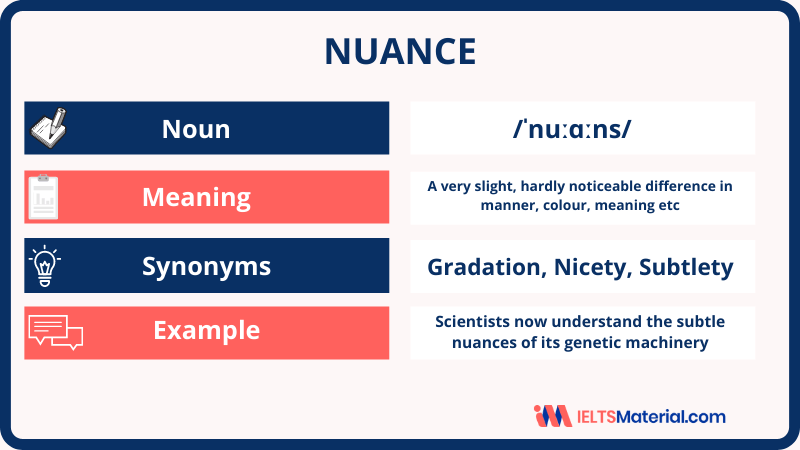
Kasturika Samanta
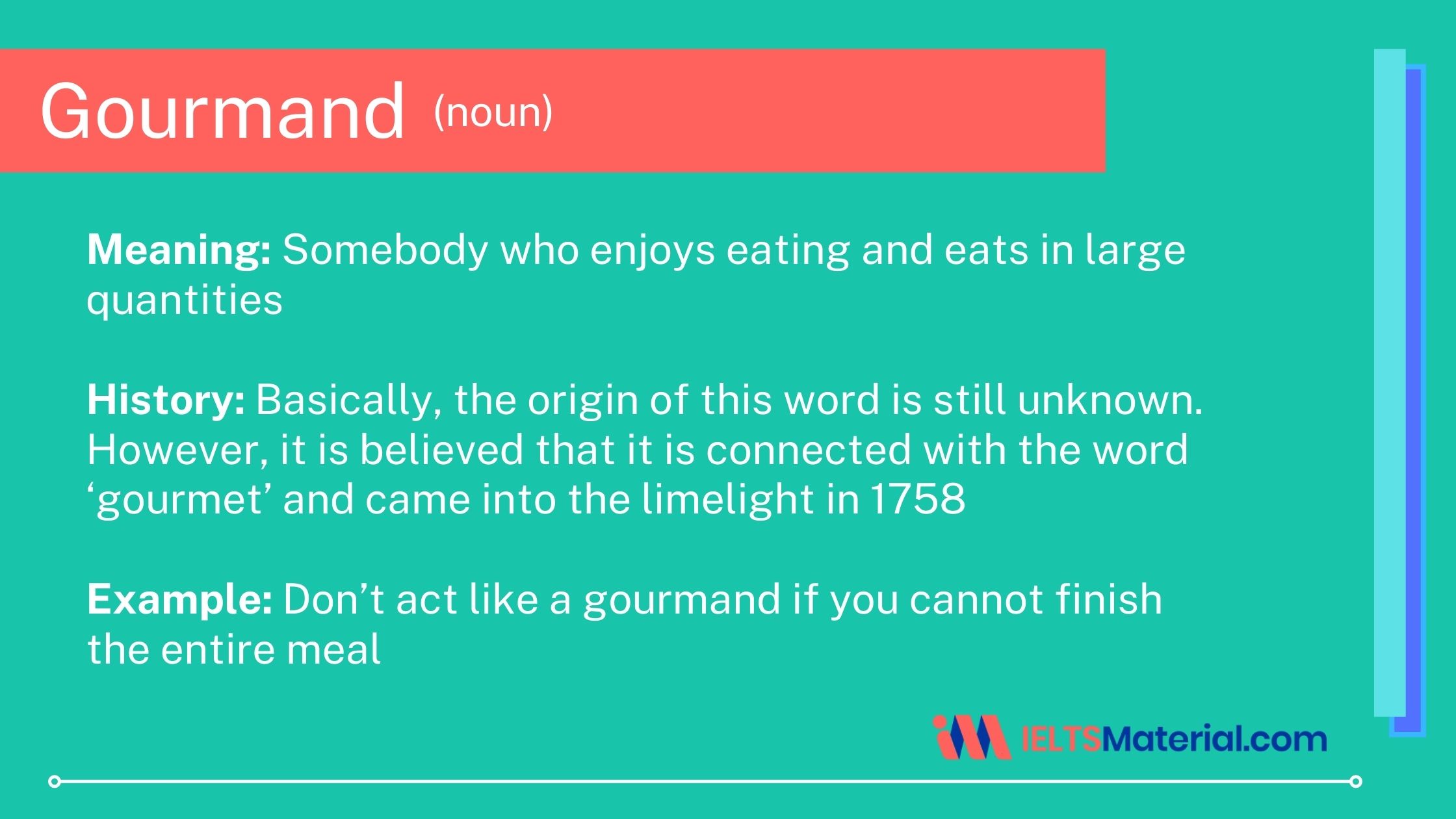

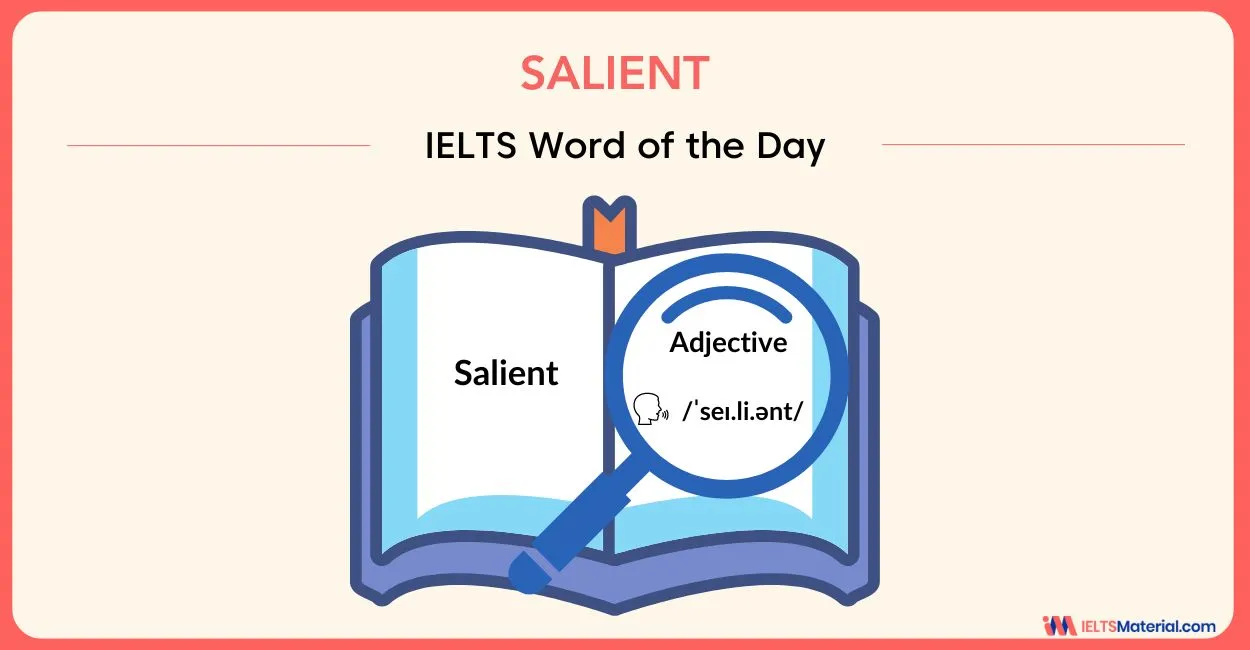


Post your Comments